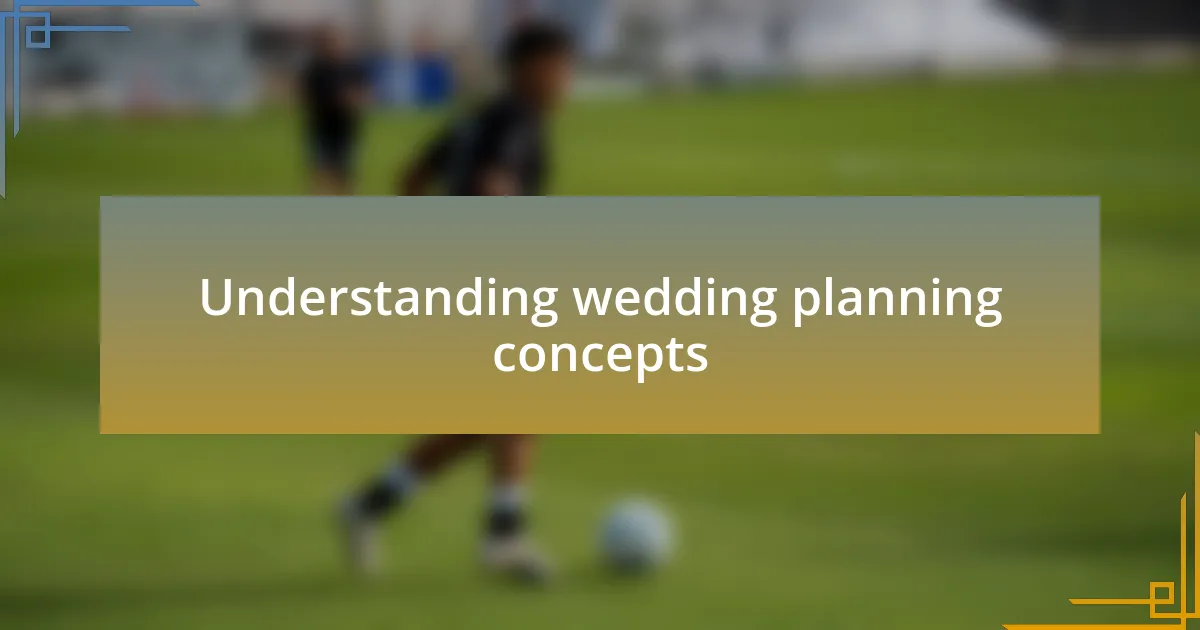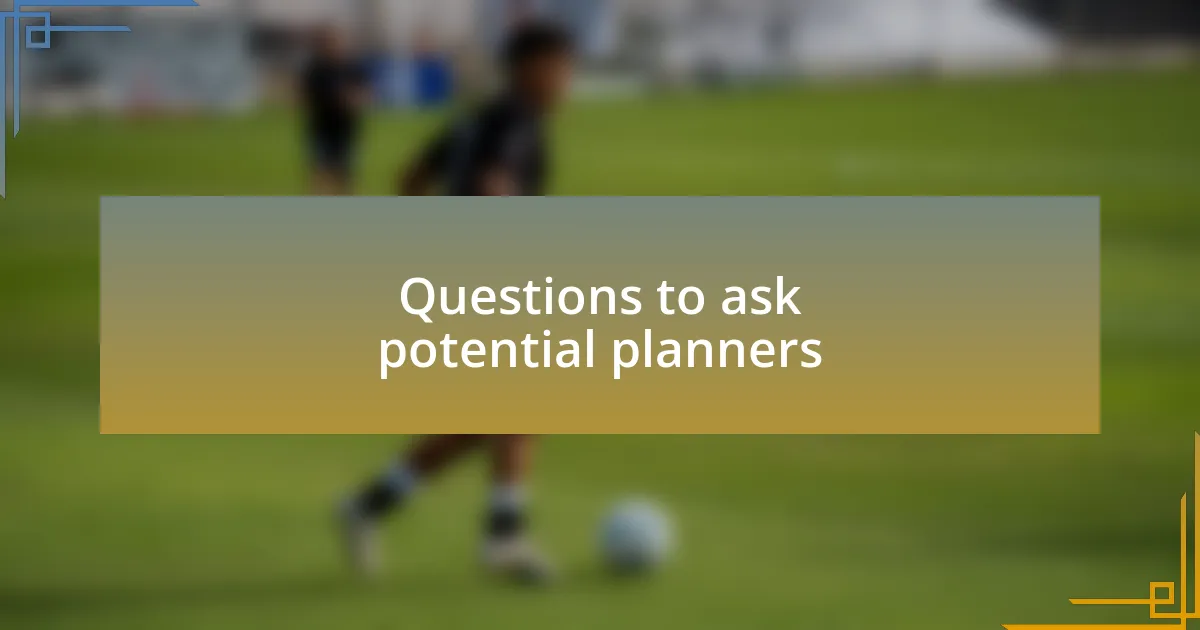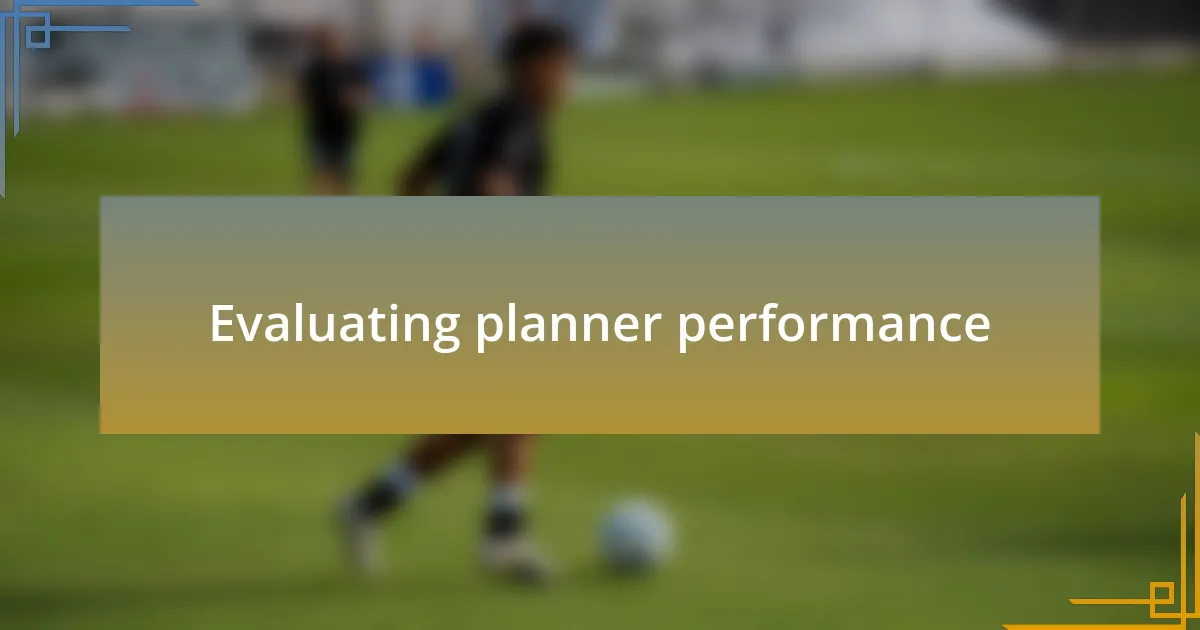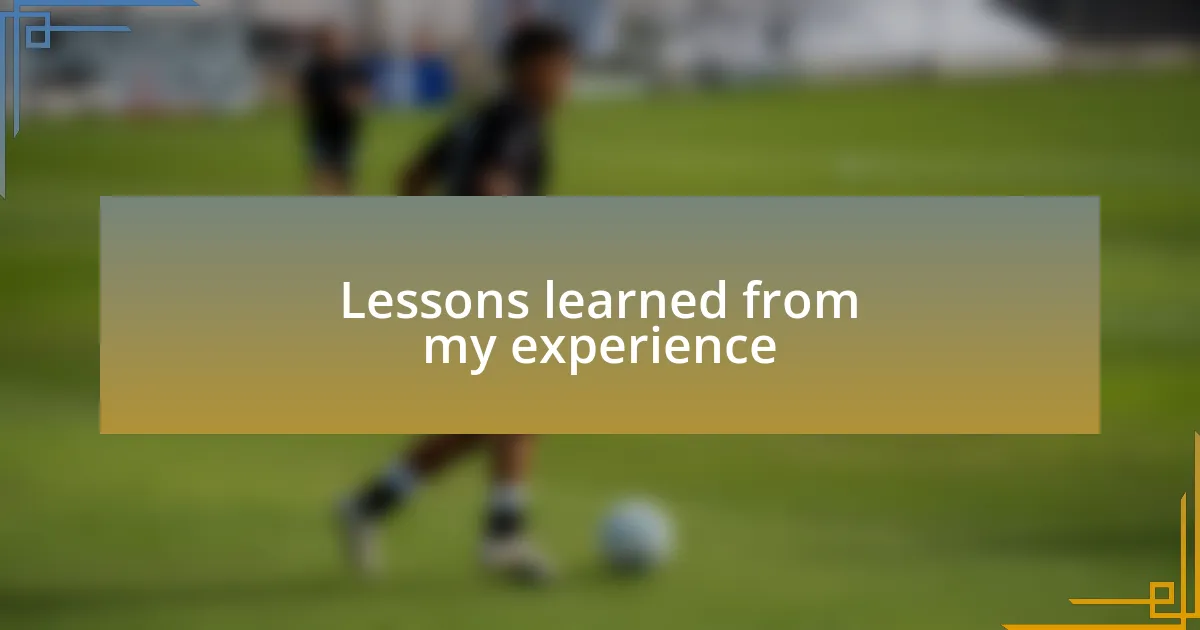Key takeaways:
- Wedding planning involves creating a personalized experience that reflects the couple’s love story, emphasizing themes, styles, and budgeting.
- Effective communication with the planner and stakeholders is crucial for aligning visions and reducing stress during the planning process.
- Evaluating a planner’s performance includes assessing their creativity in problem-solving and maintaining relationships with other vendors.
- Clear communication, flexibility, and trust between the couple and planner are key for overcoming challenges and ensuring a successful wedding experience.

Understanding wedding planning concepts
When I first delved into wedding planning, I quickly realized that it was more than just a checklist of tasks; it was about creating an experience that reflected our love story. For instance, understanding concepts like theme and style helped me visualize how each element would come together. Have you ever thought about how a single color palette can evoke different emotions?
Another pivotal concept was budgeting. Initially, it felt overwhelming, but breaking it down into smaller segments made it manageable. For example, I prioritized what mattered most to us as a couple—like the venue and photography—while compromising on other aspects. It’s like piecing together a puzzle, where each decision impacts the overall picture.
In my journey, communication emerged as a cornerstone of successful planning. I found that having open conversations with my partner and family helped clarify our vision and minimized potential stress. Have you considered how important it is to keep everyone on the same page? It not only built excitement but also turned decisions into a collaborative process, making the journey joyful rather than burdensome.

Questions to ask potential planners
When I was searching for a wedding planner, I found it crucial to ask about their experience with similar weddings. I remember one planner mentioning her portfolio of intimate ceremonies, and I could immediately see the passion in her voice. How could they understand your vision if they hadn’t worked on something similar before?
It’s also essential to inquire about their communication style. I once had a conversation with a planner who emphasized regular updates and check-ins, which put me at ease. Can you imagine the stress of not knowing the status of your planning? That kind of transparency built trust and made me feel supported throughout the process.
Lastly, don’t forget to discuss their approach to handling unexpected issues. I asked one planner how she managed last-minute changes, and her response made me laugh yet reassured me. She described a moment when a key vendor canceled last minute and how she swiftly pivoted to find a solution. Isn’t it comforting to know your planner can think on their feet during a crisis?

Evaluating planner performance
When evaluating a wedding planner’s performance, I found it essential to assess how well they executed the vision we discussed. For instance, during my wedding, I noticed how perfectly the décor reflected the mood we had talked about. It was a wonderful feeling to see those ideas come to life—did my planner really listen to my preferences, or did they just replicate their usual style?
Another aspect I focused on was their ability to stay within budget without compromising quality. I remember a tense moment when one of the costs came in higher than expected. Instead of panicking, my planner quickly suggested alternative options that actually enhanced our theme. Isn’t that the type of creative thinking you want when unexpected expenses arise?
Finally, I considered the feedback from my other vendors. After my wedding, I chatted with a few vendors, and they had great things to say about my planner’s professionalism and coordination. It’s not just about my experience; how did they manage relationships with others in the industry? That insight was crucial in understanding the planner’s overall effectiveness.

Lessons learned from my experience
One critical lesson I learned was the importance of clear communication. Early on, I realized that a wedding planner’s ability to interpret my ideas was just as crucial as their organizational skills. There was a moment when I mentioned wanting something “whimsical,” but the initial concept they presented felt too formal. It made me wonder—how could we tighten that communication loop to align our visions better?
Another insight I gathered was about flexibility. I vividly recall a specific instance when one of the key vendors double-booked a date we initially reserved. It could have been a disaster, but my planner rose to the challenge. They calmly rerouted the plans and secured a fantastic alternative, which ultimately added a unique twist to our day. That experience taught me how invaluable it is to have someone who can think on their feet—especially when chaos strikes.
Lastly, I discovered the significance of synergy. Working alongside my planner taught me that trust plays a huge role in the process. I had moments of doubt, wondering if my choices were too daring or unconventional. But as I learned to lean on their expertise, I could see the magic unfold. Remember, it’s about creating a partnership that feels comfortable—do you feel empowered to share your quirks and dreams? That connection made all the difference.